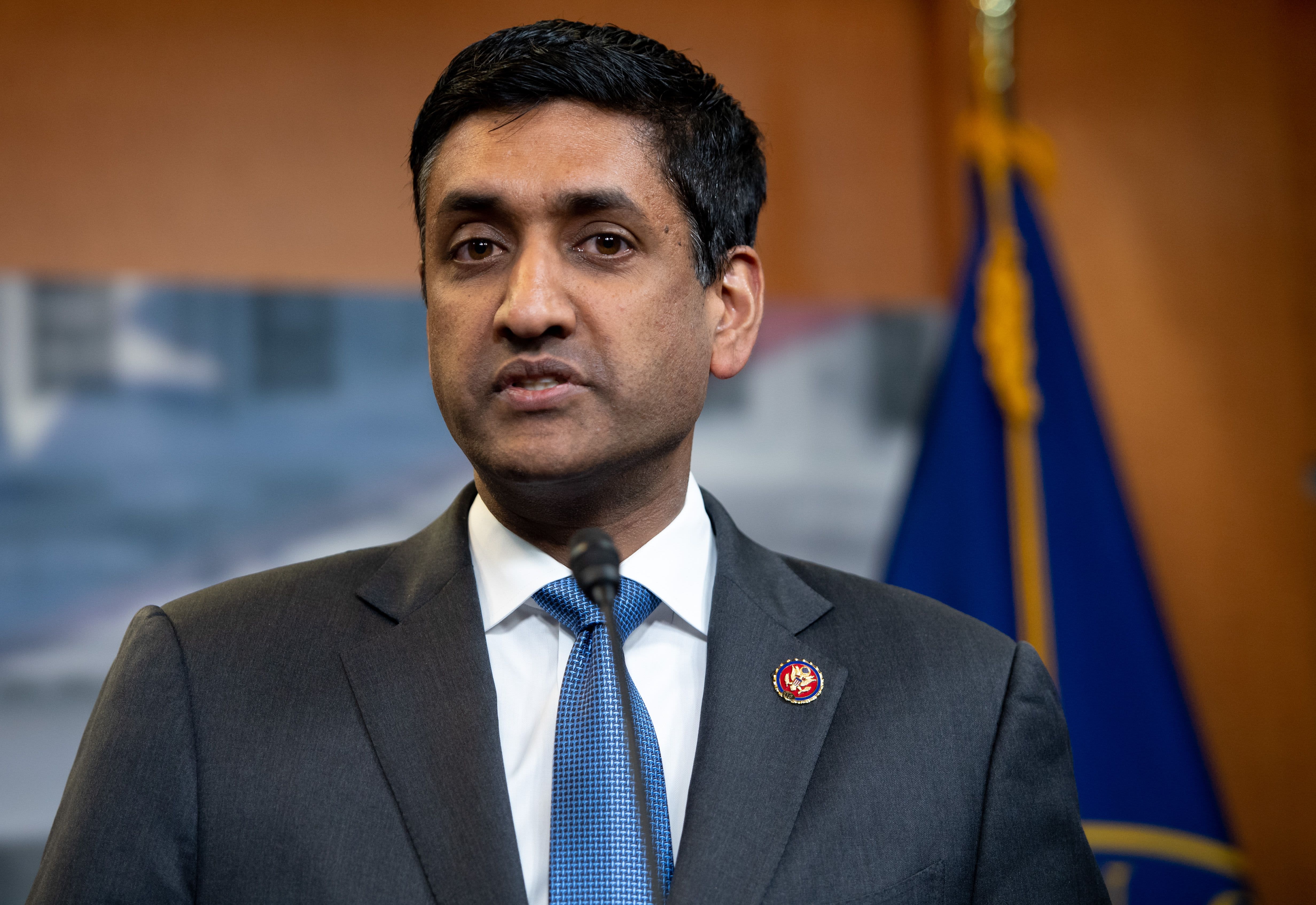The GameStop Corp. logo on a laptop computer and Robinhood application on a smartphone.
Tiffany Hagler-Geard | Bloomberg | Getty Images
Rep. Ro Khanna, Silicon Valley’s lawmaker in Congress, on Thursday proposed a bill aimed at bulking up the Internal Revenue Service’s enforcement tools and ability to crack down on tax evasion.
The legislation, if passed, would infuse the IRS with $70 billion between fiscal 2022 and 2031 to help the agency hire additional staff to audit individuals making more than $1 million in total income. Corporations with more than $20 billion in assets would also be prioritized for audits under the plan.
An additional $20 billion is tied to expanded taxpayer services and $10 billion is earmarked for upgrading the tax collector’s out-of-date technology in an effort to make it more efficient at catching fraud.
In announcing the legislation, Khanna’s office referenced the dramatic price volatility in a handful of stocks over the last month, including that of video game retailer GameStop.
“We know our tax system is broken, and it’s long past time we start fixing it,” the California Democrat and deputy whip of the Congressional Progressive Caucus said in a press release.
“Right now, the wealthiest one percent are responsible for roughly 70 percent of the ‘tax gap’—the difference between taxes owed and taxes paid. It’s time every American pay their fair share,” he added.
US Representative Ro Khanna, Democrat of California, speaks during a press conference following a vote in the US House on ending US military involvement in the war in Yemen, on Capitol Hill in Washington, DC, April 4, 2019.
Saul Loeb | AFP | Getty Images
In an effort to support IRS efforts to learn more about the nation’s top earners, the bill would further require those who make more than $400,000 per year and receive income from “sources not previously disclosed” to announce their income on a new 1099 report.
Khanna’s bill, which his office estimates would generate $1.2 trillion in revenue, leans heavily on a study published by University of Pennsylvania professor Natasha Sarin, former Treasury Secretary Larry Summers and former IRS Commissioner Charles Rossotti.
In a 2020 report entitled “Shrinking the Tax Gap,” the trio write that the federal government misses out on hundreds of billions of dollars’ worth of revenue each year as a result of taxes that were legally owed but unpaid. The bulk of that tax gap is attributable to individuals underreporting their income on tax returns.
Unpaid taxes, they claim, total more than all the individual income taxes paid by the lowest 90% of earners.
“The failure of a minority of taxpayers to pay what they owe imposes significant burdens on those who are fully compliant,” Sarin, Summers and Rossotti wrote.
“Our work has previously called for raising annual audit rates to at least 20 percent for individuals earning more than $1 million annually, who tend to have less-visible sources of income,” they said. “A substantial uptick in examinations of high-income returns will require hiring and training more agents who are capable of complex examinations.”
Notwithstanding Khanna’s bill, Congress has for years neglected to step in to stem the inflation-adjusted decline in IRS funding.
In the fiscal 2020 budget Congress passed last year, overall funding to the IRS was $11.5 billion, up 1.8% from the previous year. But when inflation is considered, the budget represented a reduction and almost all of the added cash represented a mandated pay increase for existing staffers.
In total, IRS funding has declined by more than 20% since 2010, factoring for inflation.
The budget erosion has reduced the amount of money the IRS has to pay auditors and enforcement officers, meaning that the government is less equipped to collect the taxes it’s owed. The agency lost more than 33,000 full-time positions between fiscal 2010 and 2020.
Meanwhile, those staffing cuts have led to a sharp reduction in the service’s ability to audit. A report published by the IRS in 2020 showed that taxpayers are now half as likely to be audited as they were in 2010 — with only 0.45% of returns audited in fiscal 2019.
The timing of Khanna’s announcement was opportune as House lawmakers prepared to grill key figures in one of Wall Street’s most conspicuous stories of the new year.
Scheduled to testify before the House Financial Services Committee later on Thursday are the CEOs of firms directly involved in the frenzied trading activity that occurred in a handful of stocks over the last month, including that of video game retailer GameStop.
That stock, worth $4 a share one year ago, had spiked more than 8,000% from those levels to $347 as recently as January as a coordinated effort among retail investors sparked an extreme, albeit temporary example of what’s known on Wall Street as a short squeeze.
Dozens of progressive politicians, including Khanna and Sen. Elizabeth Warren, D-Mass., heralded the eye-popping trading as dangerous and further evidence that regulators like the Securities and Exchange Commission need to play a more active role in securities markets.
GameStop shares have lost more than 75% of their value since those highs.
Chief executives from trading platform Robinhood, social media site Reddit, market maker Citadel and hedge fund Melvin Capital are all expected to testify.
